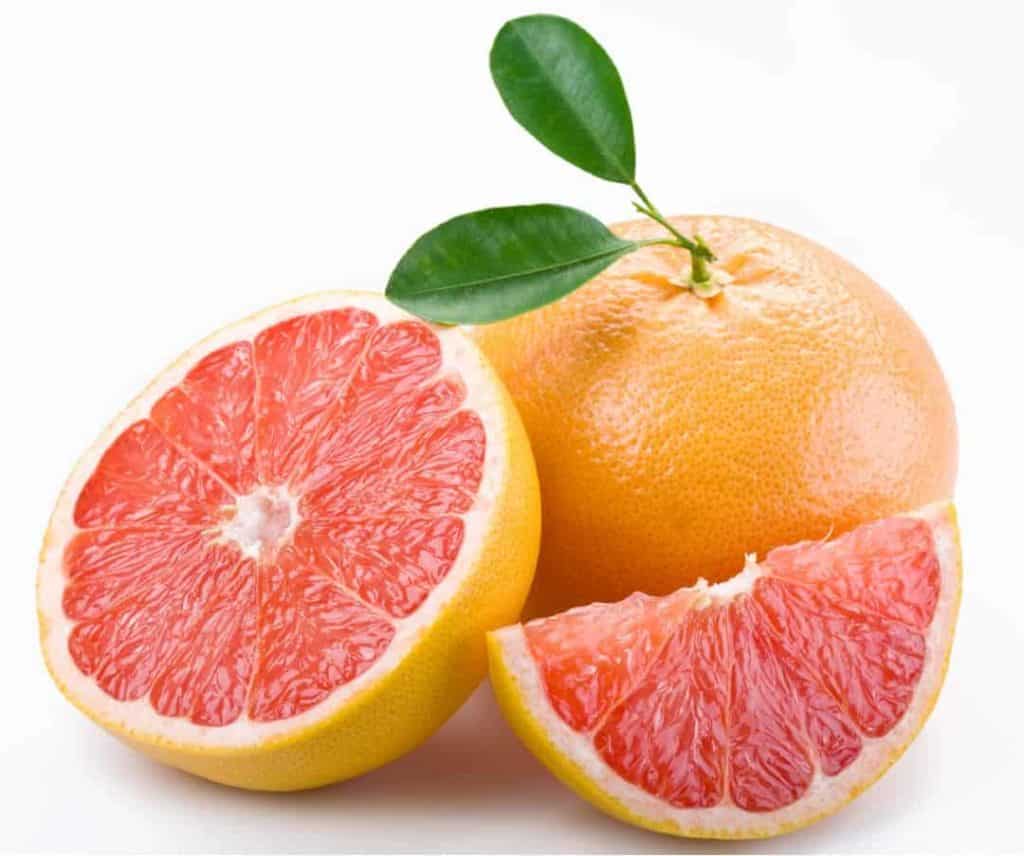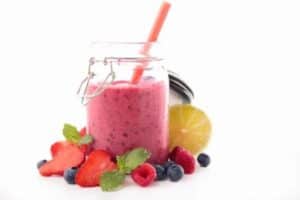Grapefruit is not just a popular subtropical citrus fruit; it is an excellent source of vitamins, fiber, and other essential nutrients. Besides its distinct color and familiar texture, grapefruit is known for its antioxidant and immune system-boosting properties, among many others. While eating raw grapefruit regularly may be far too extreme, the fruit can be easily added to your favorite foods or drinks for easier consumption.
Grapefruit Nutrition Facts
Grapefruit is an incredibly healthy fruit to add to your diet. High in nutrients but low in calories, grapefruit also provides a generous amount of fiber and more than a handful of beneficial vitamins and minerals. Here are some of the primary nutrients found in half a medium-sized grapefruit:
- Calories: 52
- Carbs: 13 grams
- Protein: 1 gram
- Fiber: 2 grams
- Vitamin C: 64% of the RDI
- Vitamin A: 28%
- Potassium: 5%
- Thiamine: 4%
- Folate: 4%
- Magnesium: 3%
Moreover, grapefruit is a rich source of potent antioxidant plant compounds, which are partly responsible for its many health benefits.
Health Benefits of Grapefruit

Heart Health
Grapefruit is high in vitamin C, which has been thought to reduce the risk of cardiovascular disease. A recent study published in The American Journal of Clinical Nutrition observed more than 100,000 individuals. Those who consumed more citrus fruits (vitamin C) and vegetables had a 15 percent lower risk of contracting heart disease.
Kidney Stones
According to the University of Wisconsin Health Clinical Nutrition Services, citric acid, also found in grapefruit, may prevent stone development and even break up small stones in the making. The more citric acid in your system, the safer you may be from developing new kidney stones.
A study published in the British Journal of Nutrition revealed that women who drank grapefruit, orange, or apple juice (one-half to one liter) every day saw their urinary pH value and citric acid excretion increase significantly.
Antioxidants
An essay in the Journal of Agricultural and Food Chemistry assessed the phenolic compounds in 13 fruit juices. Grapefruit juice was listed among the best juices. Phenolic compounds are antioxidants that can interact with free radicals to deter the progression of oxidative stress. Free radicals are linked to cell damage and splitting that can contribute to vulnerabilities and diseases.
Hydration
Unsurprisingly, grapefruit contains a decent amount of water and is, therefore, one of the most hydrating fruits out there. There are almost 4 ounces (118 ml) of water in half of a medium grapefruit (88% of its total weight). While a water-supplied diet is the best way to stay hydrated and healthy, eating water-rich foods can also go a long way.
Digestion
The fiber levels and water in grapefruit can support healthy digestion and help relieve or avert constipation.
Weight Loss
Grapefruit’s high fiber content contributes to feeling satiated, which is excellent for losing weight. Fiber may help stabilize blood sugar levels, limiting spikes that lead to hunger. A study published in the Journal of Medicinal Food looked at 91 overweight patients who received eight grapefruit capsules, grapefruit juice, half of fresh grapefruit, or placebo capsules. All subjects taking grapefruit lost significantly more weight than the placebo group. Those who ate the fresh grapefruit lost the most. And those who had grapefruit juice lost almost as much.
Cholesterol
Grapefruit contains a fiber called pectin. On its own, pectin can reduce LDL cholesterol levels and triglycerides. A study published in the Journal of Agricultural and Food Chemistry observed 57 hyperlipidemic post-coronary bypass patients and found that adding red grapefruit (or white) to their diets every day for 30 days significantly lowered LDL cholesterol levels.
Skin, Hair, and Healing
Vitamin C is essential to the wound-healing process, mainly because it promotes collagen synthesis and development. Collagen is also necessary for maintaining healthy skin and hair. Vitamin A, which is also present in grapefruit, promotes healthy tissue growth. Lastly, the high water content in the fruit helps keep skin hydrated and supple.
Eyesight
Vitamin A is also essential for healthy vision. According to the Linus Pauling Institute at Oregon State University, vitamin A (also called retinol), through a complex process within the eye, triggers an electrical signal in the optic nerve, enhancing the perception of colors and vision in dim lighting. Furthermore, vitamin A is also associated with a reduced macular degeneration risk.
Risks of Grapefruit
Grapefruit may enhance the effects of some drugs when combined. These drugs include Restasis, Neoral, Sandimmune, calcium-channel blockers, Invirase, and the hormone estradiol.
People on statins may want to avoid including grapefruit in their diet. Grapefruit tends to cause a higher number of statins to penetrate the circulatory system. This build-up of statins can be severe and lead to a rare, dangerous disease called rhabdomyolysis. People taking pharmaceutical drugs, especially statins, should talk to a doctor before adding grapefruit to their diet.
Takeaway
Grapefruit is one of the healthiest fruits on earth. It’s rich in essential vitamins, minerals, and antioxidants. Overall, grapefruit is super easy to add to your diet, whether that’s fresh grapefruit, grapefruit juice, grapefruit cake, or even scones.




